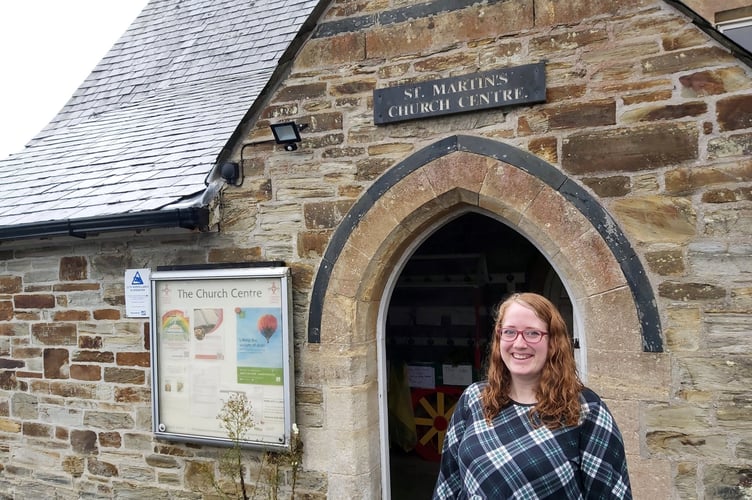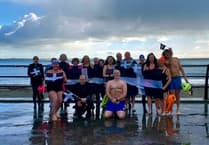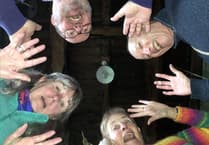St Martin’s Church in Liskeard has launched a major fundraising campaign to restore its church hall buildings and reduce their carbon footprints.
In its first 48 hours, the campaign —launched on October 16 — raised more than £10,000.
For the first six weeks of the funding drive, the insurance company Aviva has pledged to match contributions up to £250 for each individual donation, up to a maximum of £50,000.
This initial fundraising campaign aims at raising between £25,000 and £50,000 in donations from the general public, matched by Aviva’s contributions, to pay for the hall’s most urgent repairs.
The hall was originally built as a school in the middle of the nineteenth century and today serves as a hub for a broad range of church and community activities, including a popular toddlers group, dance sessions, arts and crafts, quilting and karate, all adding to an average annual footfall of 32,000 visits.
But the buildings cost the earth to heat and suffer badly with damp.
The project design phase of the project, and the application for planning permission and listed buildings consent, has been supported by a £22,000 grant from Cornwall Council’s Community Capacity Fund.
The initial implementation stage of the restoration project is scheduled to focus on the replacement of the roof and guttering and the installation of insulation, solar panels and battery storage.
Mike Sturgess, treasurer at the parochial church council, said: “As an old grade II listed building, there’s no insulation anywhere, so the energy usage is huge. It’s the equivalent of having four kettles boiling water every minute of every day of the year.
“Having completed the planning phase of the project, the next stage truly gets us onto the journey to solving the damp issues, protecting the buildings for future generations, and helping the climate crisis by making the centre net zero. Our ultimate aim is to generate more energy than we use.”
The church was this month awarded a prestigious silver award in the national Eco Church scheme, which recognises efforts to protect the environment and combat climate change. Its initiative to introduce these green upgrades to its community-facing facilities represents the latest stage in St Martin’s strategy to meet its commitments to the Church of England’s net zero carbon target for 2030.
It is hoped that the work will start in the spring of 2024. It is expected to take several years to complete all the planned phases of the restoration project, with total projected costs of £750,000.
The fundraising efforts are being coordinated by church administrator Tiffany Biddle.
“It’s important to maintain the buildings for the community who come in and use them,” she says. “We want to make it a great environment for the groups that use it. As a building that’s been at the centre of the community since it was built in 1865, we want to restore it for use by generations to come. The restoration will keep down energy costs and reduce our carbon footprint, which is of course so essential in the current climate.”
More information about the fundraising campaign can be found at www.avivacommunityfund.co.uk/p/smart-netzero




